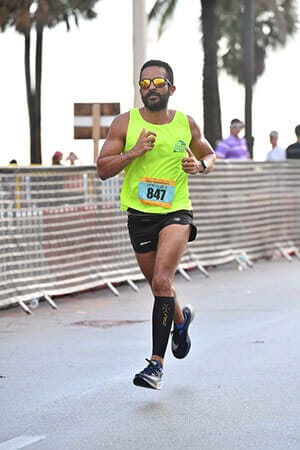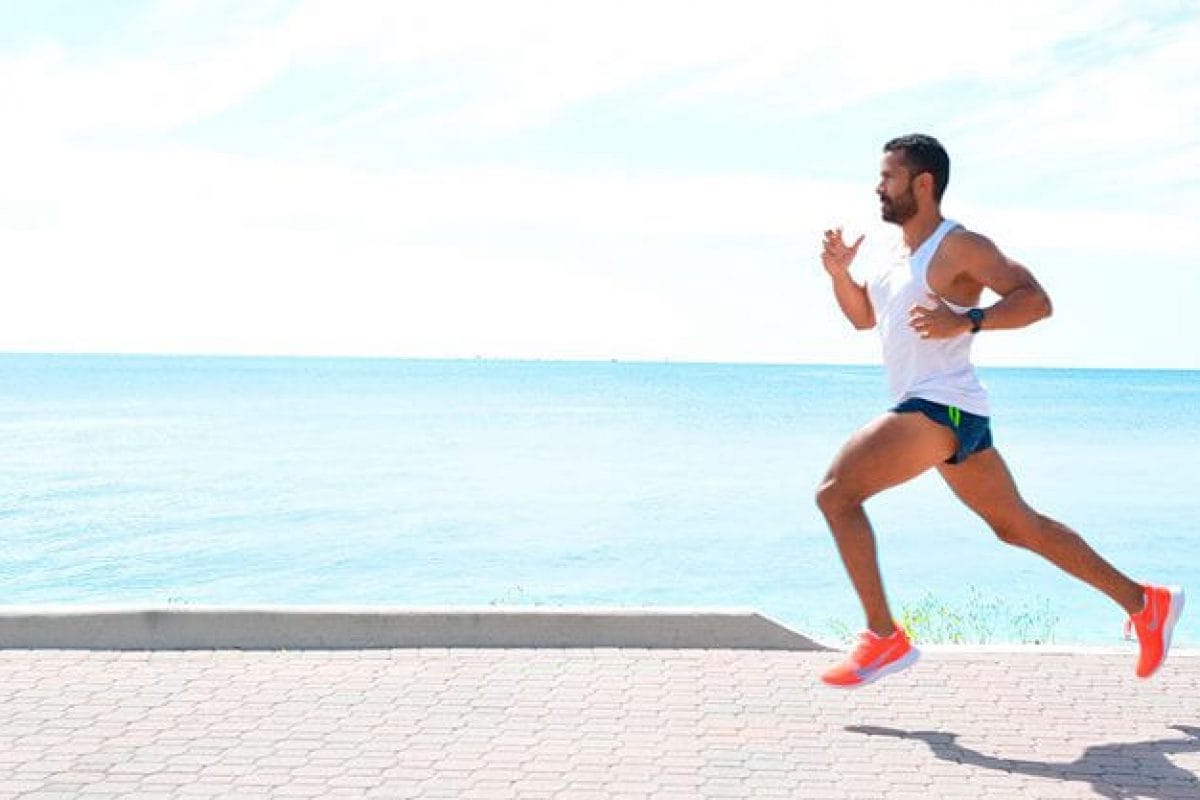If you are training to run a marathon, then training paces are important. They allow you to guide your efforts accordingly to reach the running goals you set for yourself. But how can you estimate your marathon pace? And furthermore, how can you determine the training pace you should settle on? Here is one way to go about it…
First, use a recent race time to predict your marathon time goal. A 5k time or, better yet, a half-marathon time can help predict how fast would you be able to run a full marathon course.
For example, let’s use a 5K time of 22:00 minutes. This 5K reference predicts a marathon time of 3:31:05, with a running pace of 8:03 minutes per mile. How did we came out with those numbers? Easy…scroll down to estimate your marathon time by using the pace calculator we included below this article.
Once you estimate your time and pace, use them as reference for your personal training. A good rule of thumb is to use a range of 20 to 60 seconds per mile slower than your goal race-pace when training. And remember the longer the run, the slower the pace (depends how you feel). For example to achieve my marathon goal, my pace had to be between 6:40 and 6:50 minutes per mile. Hence, I tried my best to finish my workouts between 7:00 and 7:40 minutes per mile depending of the type of training I was carrying out that day.
How can you improve your pace? Speed training, cardio at the gym and swimming. All of those helped me get my pace to where I wanted to!
Check out the link below to my Instagram page, I posted highlights of my workouts so you can see firsthand some of my marathon training…





